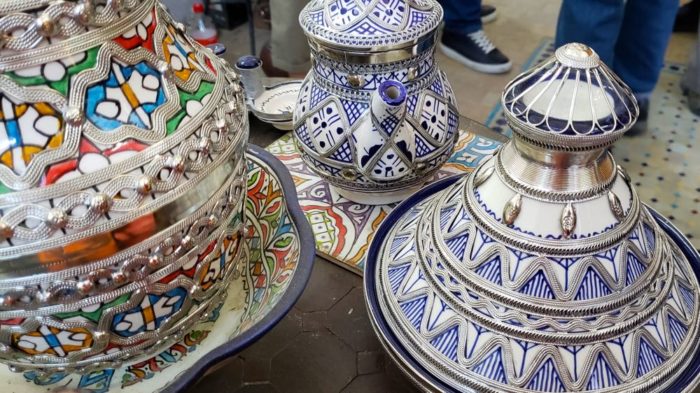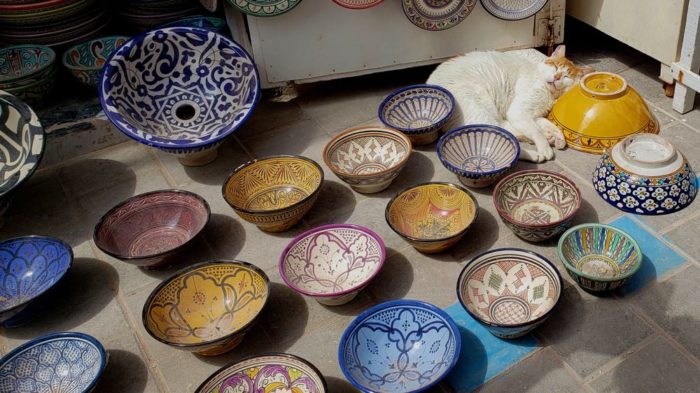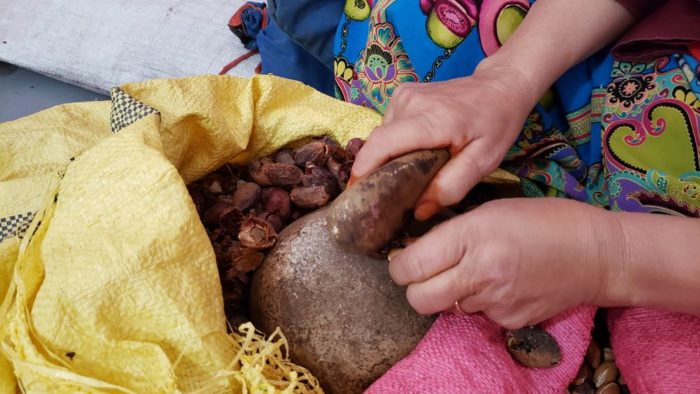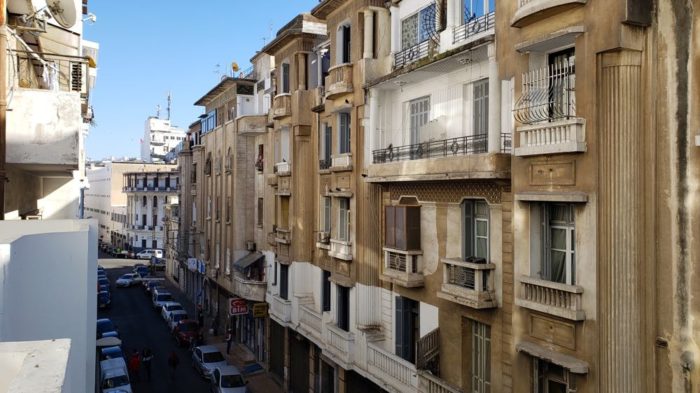
The importance of traveling to a developing country was part of my thinking from the moment I started to decide where to go next.
Looking through Just You‘s brochure, I flew past the countries that seem to me to be quite easy to travel. Then Morocco caught my eye. I'd never been.
On a tour, I prefer to go to a country that is a bit more challenging than one I would travel on my own. Perhaps Morocco was the one.
I had some research to do. What is the transportation like? Would I be able to see as much of the country on my own as I'd like? Would a tour experience give me more than independent travel? Is Morocco considered a developed country or a developing country?
That last question gave me pause.

Morocco, Modern and Traditional
When I asked myself the question of whether Morocco is a developing country I also asked whether the term is a correct one. That took me into the rabbit hole of language.
It seems that there is no real consensus around the terminology to classify countries. While the term “developing” is typically used for Morocco, in economic terms, the World Bank considers it to be a lower middle income country. Pulling language from the business sector, Morocco is considered a lean rather than a fat country. Like a business start-up, they are more innovative than dependent on previous ways of doing things.
In common parlance, Morocco is a well-developed, developing country. It is very modern in some ways and very traditional in others.
Morocco's investment into solar energy is quite extraordinary. Their Noor I, II, and II are the largest solar energy plants in the world. Our guide told us that King Mohammed VI's plan is for the country to supply energy to Europe.
A program that bridges the modern with the traditional is the Green Morocco Plan. There are two pillars to the plan. Pillar I is for commercial farming while Pillar II is about food security and reducing poverty. Driving through the country, I could see small family farms that were nurturing green produce from an otherwise dry, barren landscape.
Then there are the primarily female co-operatives that produce traditional rugs, pottery, and jewelry for sale. This is done at home, outside of regular work hours, and makes it through a chain of intermediaries into the markets of the the cities.
My choice was Morocco. It definitely met my criteria of preferring to take an escorted tour for a destination that is more challenging. (Please read Benefits of a Coach Tour: My Morocco Trip for more details on why.) It also appealed to me because for the last couple of years, most of my travel has been to affluent nations such as Japan, Australia, and a number of European nations. It was time to get out of the fat countries and into the lean.


5 Benefits of Travel to Developing Countries
When your part of the world opens to travel once again, travel beyond your borders, I can definitely recommend Morocco. It does not cause a heavy culture shock but it does bring one out of a western mindset. It's a tiptoe into more dramatic differences one can encounter in India, parts of Asia, Africa, and South America.
I know that there is pent up desire to travel to Europe or Australia or Canada or the UK, but really, I think it's important for us to stretch a little and go to countries where life is not quite as easy as it is at home. As I left Morocco just at the point where borders were closing, I had a strong feeling that the people who had guided, driven, and served me, who had sold me their handicrafts and shared their hospitality, would be very hard hit by the sudden shutdown and absence of tourists.
The benefits of going to a developing country as a traveler.
- Enjoy a truly rich experience. If you are traveling from a so-called western nation to a developing country, you are in for a truly rich cultural experience. A history with little connection to your own results in more delightful surprises than imaginable.
- Travel more for less. It's much cheaper to travel a country like Morocco than any country in Europe. It affords a rich cultural experience, plus you'll get luxury for a fraction of the cost.
- A different travel education. A developing country tends to be a country of great contrasts with both strengths and weaknesses in very specific areas. Returning home you will have a better understanding of your destination as well as more context with which to understand the world.
- Understand your affluence. It's so easy to forget, or perhaps you have never known, what it is to lack what you need rather than simply what you want. Traveling in a country where poverty is more evident gives you a healthy perspective of your position in the world.
- Experience true gratitude. As a traveler, you are, by definition, fortunate. It's important to known and experience that good fortune with gratitude and generosity. I encourage all travelers to leave as much money behind in the form of tips and the purchase of local goods as possible.
The primary benefits of your tourism for local citizens is economic.
- Financial injection into the economy – Tourism dollars, pounds, or Euros coming from outside a country are a much-needed financial injection into the economy. It tends to support infrastructure development and public services such as roads, health facilities, and communication networks.
- Employment opportunities arise from tourism including jobs at hotels, restaurants, as bus drivers, translators, cooks, and tour guides.
A note of caution. Tourism, especially over-tourism, can cause damage. It's critical that tourism be approached in a sustainable way with care for the environment, cultural heritage sites, and ensuring that money stays in the community rather than being exported to foreign-owned enterprises.
I'll be writing more about Morocco. You can also take a look at my recent posts on Instagram where I featured this trip last week.
On this trip I was a guest of Just You, a company that specializes in solo travel. Naturally, the thoughts and opinions are strictly my own.
